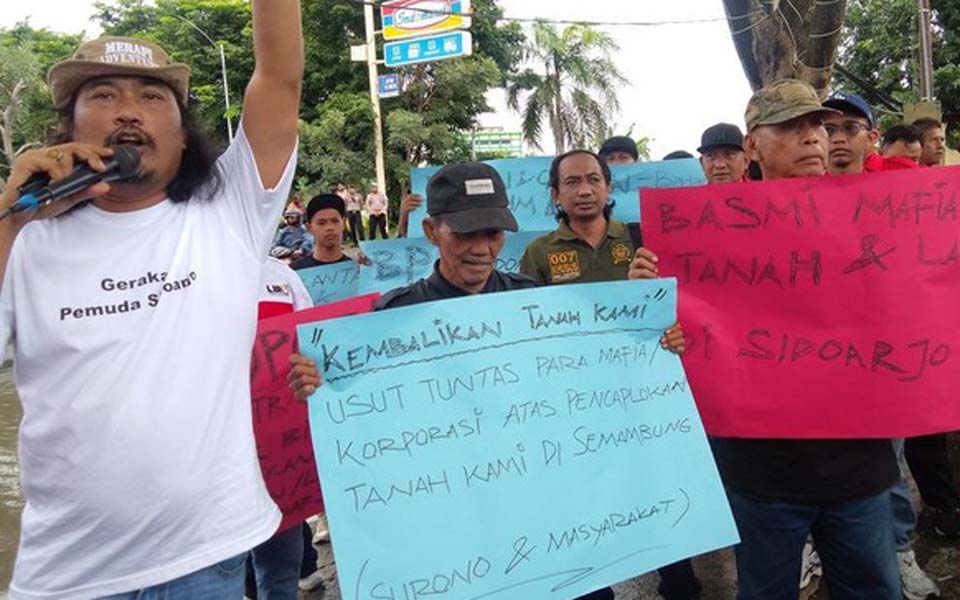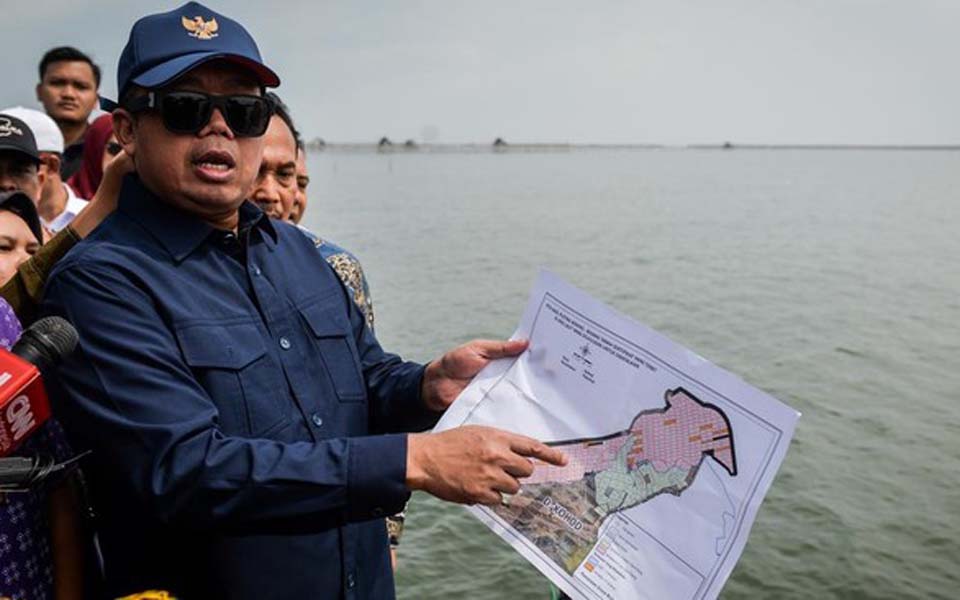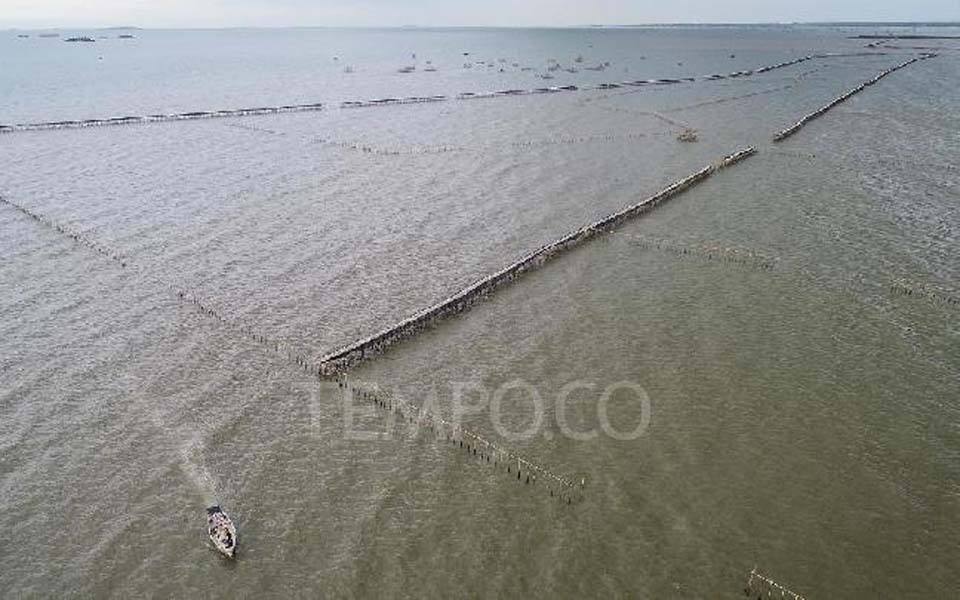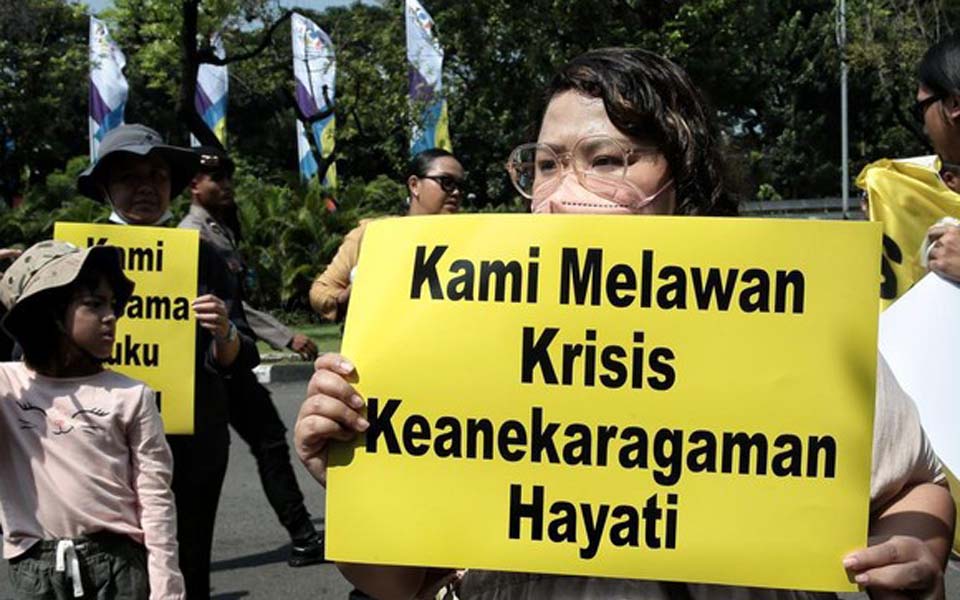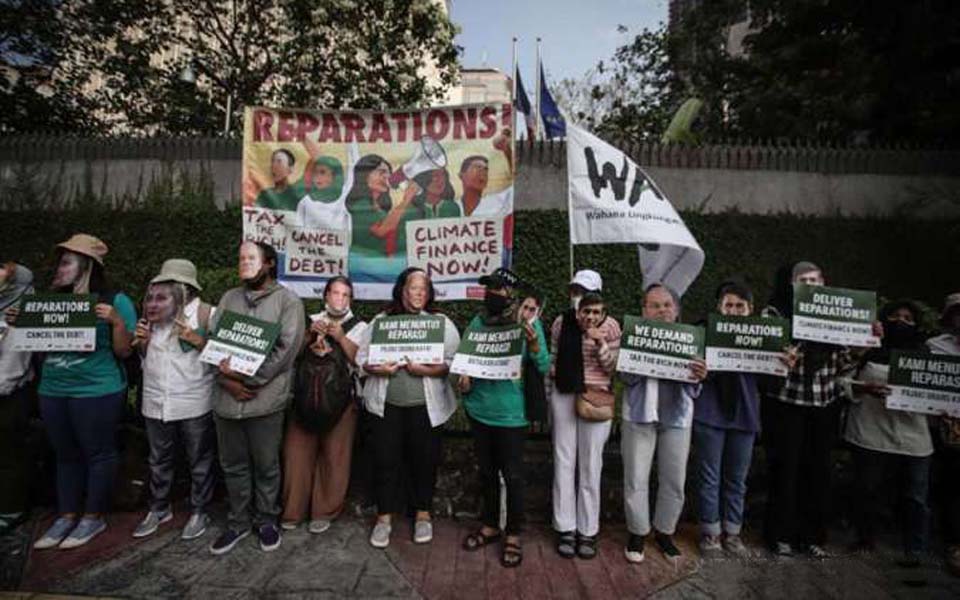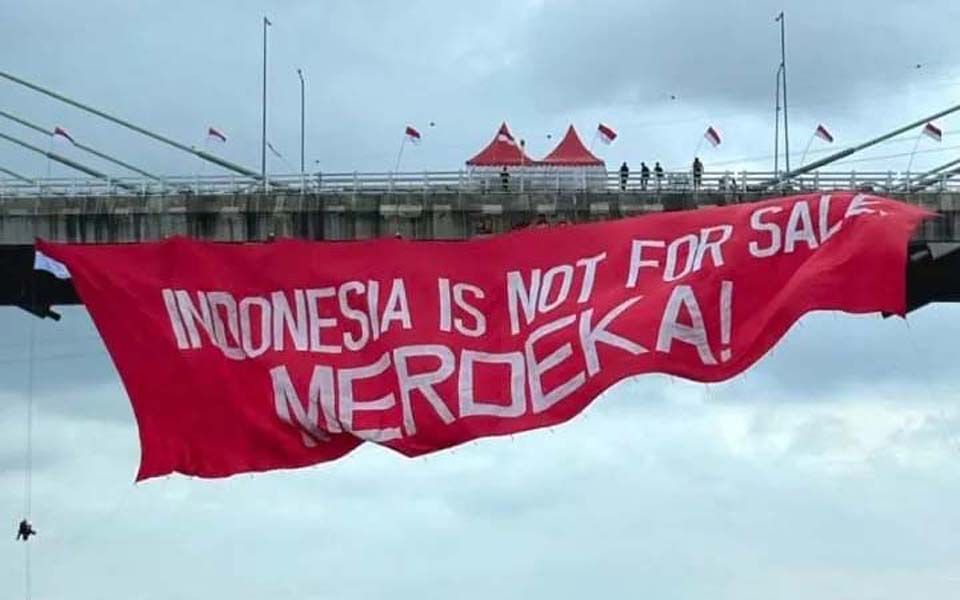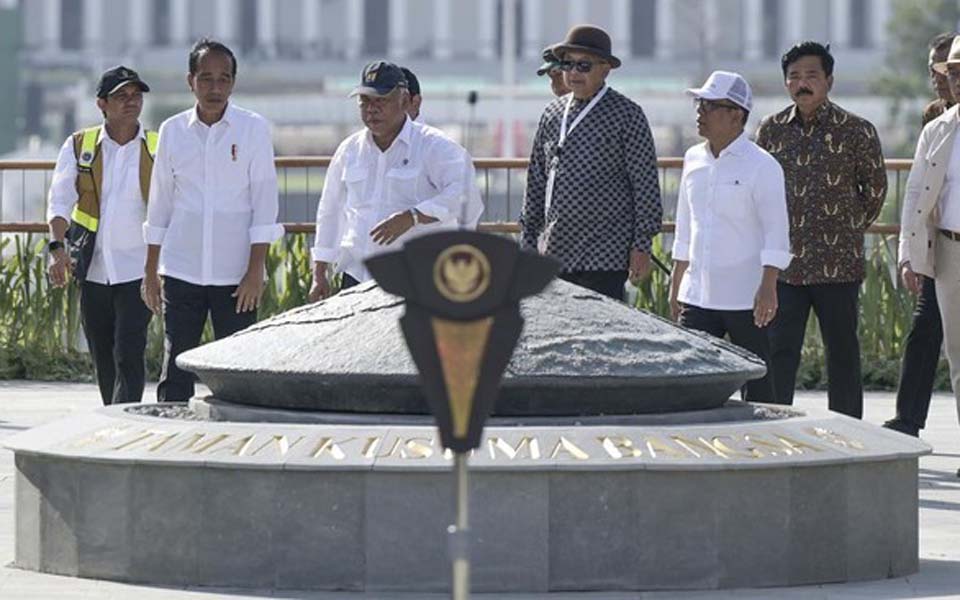Jakarta – The Jakarta Indonesian Forum for the Environment (Walhi) has criticised acting Jakarta Governor Heru Budi Hartono's proposal to create a special island for waste disposal.
Walhi Jakarta campaign manager Muhammad Aminullah is of the view that the proposal is not the right solution to deal with Jakarta's waste problem because the paradigm being used is how waste can be removed from sight, not reducing its production.
"That [solution] is not actually appropriate", Aminullah told CNN Indonesia on Thursday May 16.
Yet, said Aminullah, the current waste problem is that its production is increasing. Based on Walhi's records, waste production in Jakarta has reached around 8,000 tons per day.
"Meanwhile its management is minimal, 7,000 tons are dumped at the Bantargebang [waste processing facility in Bekasi], which then becomes a problem and causes waste to pile up", he said.
Aminullah is of the view that the government should focus on reducing waste production first. "If waste production can be reduced, downstream management will automatically be easier and not take up much space", he said.
Organic waste for example. Aminullah said that organic waste accounts for 50 percent of all waste in Jakarta. According to Aminullah this category of waste can be reduced using simple methods such as composting and maggots.
"If this organic waste is managed well, Jakarta's waste load will automatically be reduced by half", he said.
Aminullah said that various types of waste can actually be managed without landfill facilities. One of them is through waste banks.
"So it's important to overcome upstream problems first so that the amount of our waste is reduced. If the focus continues to be downstream, the question is how many landfills do we want to create?", he said.
"Or in the context of making an island, how many islands do you want to make? Because the amount of waste will continue to increase every year if it's not reduced", he added.
Actually, said Aminullah, regulations on waste management already exist but the implementation is still lacking.
"At the household level there is a regional waste management regulation for the RW [community units] level, at the regional level there is a regional waste management regulation, for manufacturing there is the waste management law and a LHK [Ministry of Environment] regulation on a road map for reducing manufacturing waste. This must be maximised first", explained Aminullah.
Not only that, Aminullah also highlighted the waste produced by manufacturers or industry. Based on regulations, manufacturers are supposed to use environmentally friendly products and minimise plastic waste.
"These manufacturers should be held responsible, rather than providing facilities that come from the ordinary people's money to manage waste, which is actually the manufacturers' responsibility", he said.
Marine ecosystem damage and pollution
Creating a rubbish island is also considered to end up disrupting the marine ecosystem. The reason being the fear that the waste will pollute the ocean. "There are several risks that could arise, microplastic and leachate pollution for example", Aminullah said.
This of course creates a domino effect on other aspects. If the sea is polluted and the fish is contaminated with microplastics, it's dangerous to consume. "In the end it will affect people who depend on the sea or eat marine products", he said.
Not to mention if later piles of rubbish are burned using an incinerator. Aminullah said that this would also cause the air to become polluted.
"Then from the technology used, if you use thermal technology such as RDF, incineration or pyrolysis, there is clearly the potential for environmental pollution, especially as what is burnt is rubbish, there is the potential for the release of dioxin and furan compounds which are dangerous to living things", he explained.
Earlier, Governor Hartono said they planned to build a waste island which would become a waste disposal and processing site for the Jakarta Special Region (DKI) agglomerated area.
Hartono said that Jakarta no longer has enough land for waste disposal sites. In the next 10 years, he said, it will not be possible for the people of Jakarta and its surrounding areas to dispose of waste at the Bantargebang Integrated Waste Processing Site (TPST).
The construction of he waste island will utilise sediment or mud dredged from the bottom of 13 rivers in the greater Jakarta area as well as from community rubbish.
The accumulated sediment from Jakarta's rivers is considered to be a frequent problem because they are dredged daily but have no place for disposal. So the option could be to move it to the northern coastal area to resemble an island.
"So, the location of the island there can be determined by whoever, we will reclaim it using sediments, all kinds of rubbish, and then it will become an island", said Hartono at the Jakarta City Hall on Tuesday May 14. (yla/isn)
[Translated by James Balowski. The original title of the article was "Walhi Jakarta Kritik Rencana Heru Budi Bikin Pulau Sampah".]







